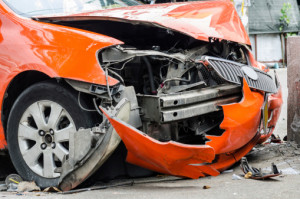- ATV accidents
- Brain Injuries
- Bus Accident
- Car Accidents
- Construction Accident
- Distracted Driving
- Drugged Driving Accident
- DUI
- Firm News
- Mass Tort
- Medical Malpractice
- Motorcycle Accidents
- Pedestrian Accidents
- Personal Injury
- Product Liability
- Safety
- Social Security Disability
- Truck Accidents
- Vehicle Accidents
- Workers Compensation
- Workplace Injuries

The ongoing push for automakers to build the safest vehicle possible is paying off, according to the results of a recent study by the Insurance Institute of Highway Safety.
Nine models sold during the 2011 model year had zero deaths per million registered vehicles, meaning that no drivers died during the three-year study period. When the IIHS conducted a similar analysis eight years ago, no models had a zero death rate.
While some of the nine safest vehicles were luxury cars or SUVS, a couple were mainstream minivans and sedans. They included the:
- Audi A4 4WD
- Honda Odyssey
- Kia Sorento 2WD
- Lexus RX 350 4wd
- Mercedes-Benz GL-Class 4WD
- Subaru Legacy 4WD
- Toyota Highlander hybrid 4WD
- Toyota Sequoia 4WD
- Volvo XC90 4WD
Overall, the IIHS said that the smaller, cheaper cars remain the most dangerous. However, the gap among death rates remains wide. Nineteen models sold during the 2011 year had five deaths or fewer, while three vehicles had death rates exceeding 100. They were the:
- Kia Rio (149 deaths)
- Nissan Versa (130 deaths)
- Hyundai Accent (120 deaths)
Safety Technology is Making a Difference
The improvements in vehicle design have definitely helped decrease driver fatalities, the IIHS said. In particular, the agency pointed out that electronic stability control systems – which comes standard on all vehicles since 2012 – have done a tremendous job in reducing the number of rollover crashes on America’s roadways. That’s significant because two-thirds of the vehicles with zero death rates were SUVs, which a decade ago were considered some of the most dangerous cars on the roads due to their higher center of gravity and tendency to rollover.
Larger, sturdier occupant compartments also hold up better in all types of crashes, improving the performance of seat belts and side airbags, the findings showed.
An IIHS comparison estimates that there were 7,700 fewer deaths in 2012 alone than if cars were still manufactured according to 1985 standards.
More Cars are Crashworthy
The IIHS is well known for its analysis of the crashworthiness of vehicles entering the marketplace. According to agency officials, another sign that driver death rates are likely to continue to decline is that vehicles are holding up better in crash tests. One example is the IIHS’s moderate overlap crash test, which evaluates how cars perform when they hit each other from different directions or if a vehicle strikes a stationary object like a tree. While most cars performed poorly when the agency initially began testing performance in these accident scenarios years ago, now most earn good ratings.
The Takeaway: It’s Getting Better, but Lives Are Still at Stake
Statistics from the National Highway Traffic Safety Administration show a decline in the number of deaths and injuries in crashes in Kentucky and nationwide. Recently released data shows that Kentucky recorded a 14 percent decline in fatal traffic accidents in 2013 compared to the previous year. Still, more than 600 people died in accidents on Kentucky roads and highways that year and a fourth of the fatal accidents involved a drunk driver.
While safer vehicle offer more protection, they cannot prevent an unsafe driver or a drunk driver from causing an accident and injuring you or fatally injuring your loved one. Serious accidents often have lifelong repercussions. That is why it’s important to consult a knowledgeable Kentucky car accident lawyer after a serious accident. It’s also important for people who disregard the rules of safe driving and cause injury to be held accountable for their negligence.
If you or a loved one has been injured or killed in a Kentucky car accident, please contact the Law Office of Frank Jenkins so that we can answer your legal questions. You have nothing to lose by getting more information.

